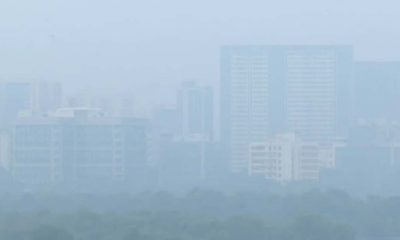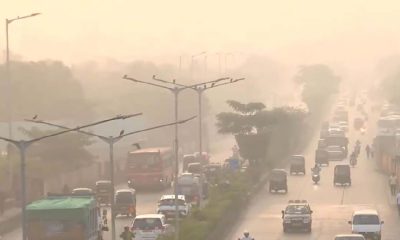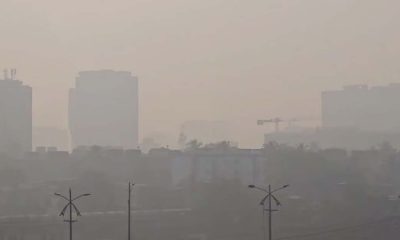National News
‘Consistent with dignity, socially acceptable’, SC mulls panel to examine less painful method of execution
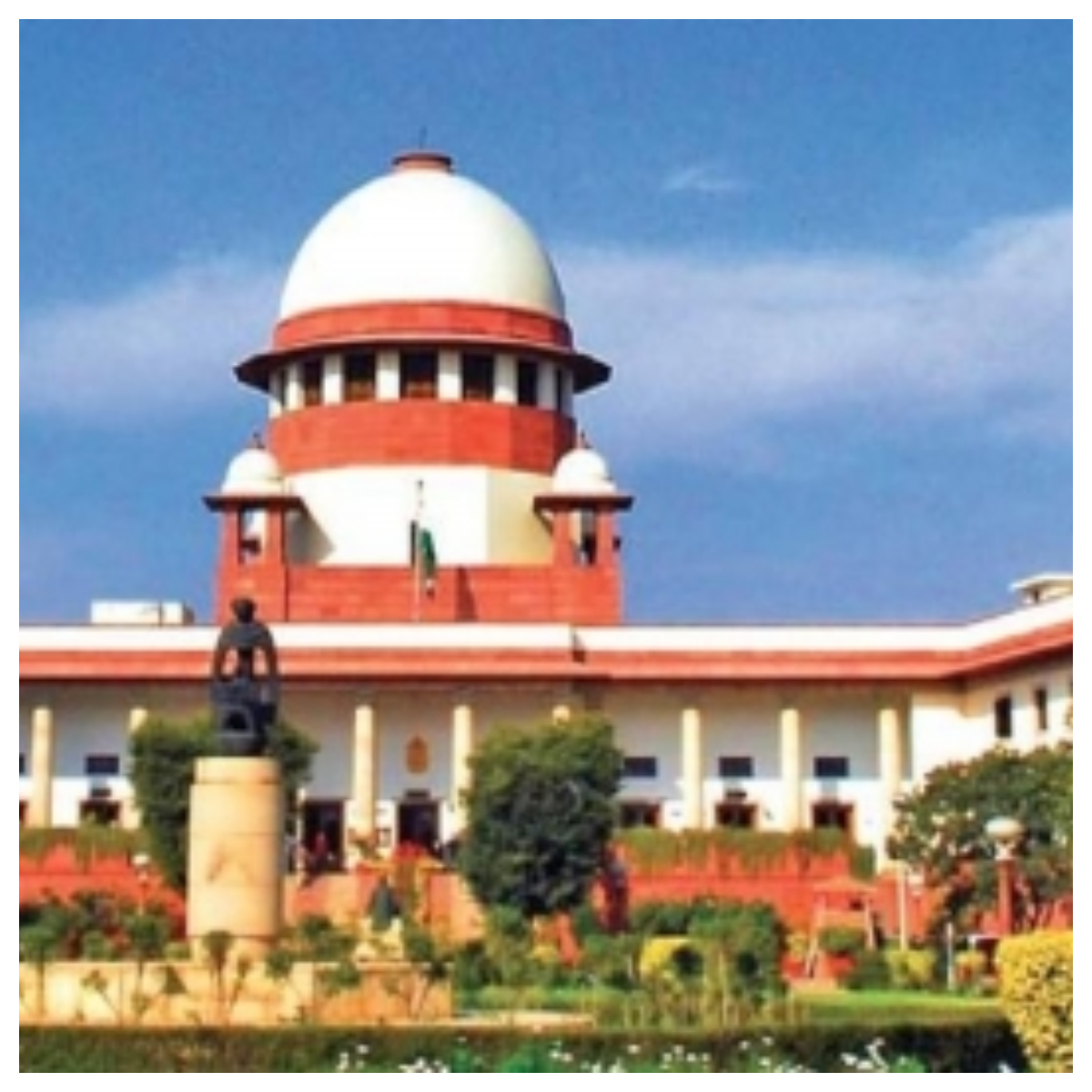
The Supreme Court on Tuesday said it is open to set up a panel of experts, while asking the Centre to initiate a discussion and collect relevant information to examine if there is a less painful method alternative to hanging by the neck to execute the death penalty.
A bench headed by Chief Justice of India D.Y. Chandrachud said one of the aspects could be to look at the matter from the point of view of science and technology.
The Chief Justice queried if there was a method which is consistent with human dignity and socially acceptable, based on today’s knowledge of technology and science.
“Do we have any data either in India or overseas relating to the circumstances as they transpired in the execution of sentence of death with alternate methods?”
The bench, also comprising Justice P.S. Narasimha, said: “alternatively, do we constitute a committee, thinking it aloud, not passing an order now. Committee to reflect on it. We can have two national law universities to be on the committee, experts dealing in execution of the sentence of death… We can also have people drawn from medical sciences, maybe one or two professors or doctors from AIIMS. We can have other distinguished people from the country.”
The top court allowed Attorney General (AG) R. Venkataramani time till May to ascertain if any study has been conducted to find a more humane method of execution.
“There two perspectives to look at, one, is there any alternate method, which is more consistent with human dignity so as to render this method of execution as unconstitutional. Two, even if there is no alternate method, does this method satisfy the test for proportionality so as to be uphelda”, the Chief Justice told the AG to examine.
The bench further added that change in technology or availability of better science is a ground for relooking it and in order to relook at hanging, the court must have some underlying data.
“At legal level, we must have some scientific data in our handsawe can hear you on the remit of the committee, the ambit of the committee you can come back to us,” the Chief Justice told the AG.
The apex court was hearing a writ petition by advocate Rishi Malhotra seeking a direction for quashing of the provision contained under Section 354(5) of the Criminal Procedure Code as ultra vires the Constitution and especially Article 21 being discriminatory and also in contravention of the constitution bench judgment in Gian Kaur’s case.
Malhotra contented that he is challenging the method of execution of death sentence in India i.e. by hanging by the neck till the prisoner is dead.
The plea, citing Kaur’s judgment, said: “the Right to Life including the Right to Live with human dignity would mean the existence of such a right up to the end of natural life. This also includes the right to a dignified life up to the point of death including a dignified procedure of death. In other words, this may include the right of a dying man to also die with dignity when his life is ebbing out.”
In october 2017, the apex court had issued notice to the Centre noting the contention of the petitioner that the convict whose life has to end because of the conviction and the sentence should not be compelled to suffer the pain of hanging.
National News
SC issues notice on plea to frame guidelines over ‘menstruation checks’
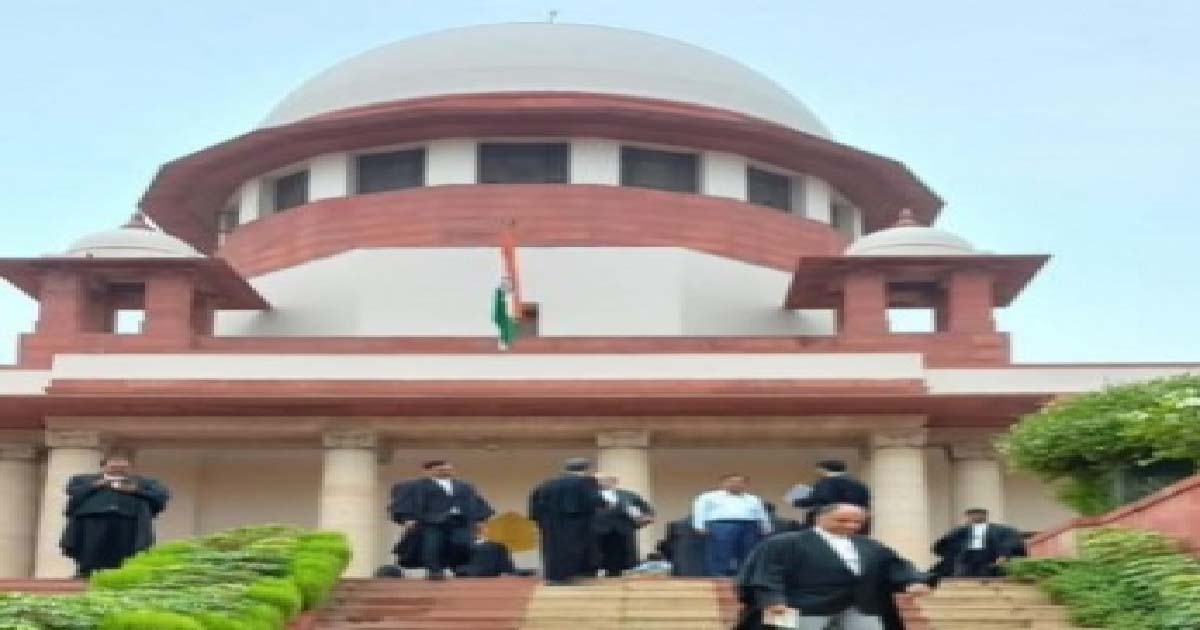
SUPRIM COURT
New Delhi, Nov 28: The Supreme Court on Friday sought responses from the Centre and the Haryana government on a petition highlighting the alleged humiliation of three female sanitation workers at Maharshi Dayanand University (MDU) in Rohtak, who were reportedly forced to furnish photographic proof of menstruation to their supervisors.
A bench of Justices B.V. Nagarathna and R. Mahadevan issued notice on the writ petition filed by the Supreme Court Bar Association (SCBA) under Article 32 of the Constitution.
The matter, now scheduled for hearing on December 15, raises concerns about protecting women’s rights to health, dignity, privacy, and bodily autonomy in workplaces and educational institutions during menstruation or related gynaecological issues.
The plea stems from an incident reported on October 26, when the three sanitation workers — called in on a Sunday due to the visit of the Haryana Governor — were allegedly “verbally abused, humiliated and pressured” by supervisors hired through the Haryana Kaushal Rozgar Nigam Limited.
According to the petition, the supervisors “demanded photographic proof from the workers by asking them to send photos of their sanitary pads”.
During the hearing, Justice Nagarathna-led Bench remarked that the episode reflected “a mindset” that was deeply troubling.
“In Karnataka, they are giving period leave. After reading this, I thought — will they ask for proof for giving the leave?” observed Justice Nagarathna.
“This shows the mentality of the person. If some heavy work could not be done because of their absence, somebody else could have been deployed,” the apex court added, expressing hope that “something good will happen in this petition”.
Following the incident, the MDU had suspended the two supervisors and initiated an internal inquiry. The Haryana State Commission for Women also took suo motu cognisance and sought reports from the varsity administration and the Rohtak police.
The Assistant Registrar and the two supervisors were subsequently booked under various provisions of the Bharatiya Nyaya Sanhita relating to assault and outraging the modesty of a woman.
Calling the episode “disturbing”, the SCBA in its petition said such acts amounted to a violation of the women’s fundamental right to life, dignity, privacy and bodily integrity under Article 21.
The plea also referred to similar instances of “period-shaming” and invasive checks in schools and workplaces over the years, including a 2017 case where 70 girls in Uttar Pradesh were allegedly stripped naked to check for menstrual blood, and a 2020 incident in Gujarat where 68 college students were asked to remove their underwear for inspection.
Filed through advocate Pragya Baghel, the petition has sought directions to the Centre and the Haryana government to conduct a detailed inquiry into the Rohtak incident and issue nationwide guidelines “to ensure that the right to health, dignity, bodily autonomy and privacy of women and girls is not violated when they are going through menstruation and related gynaecological issues at workplaces and educational institutions”.
National News
SC restrains Maharashtra SEC from exceeding 50 pc reservation in local body polls

SUPRIM COURT
New Delhi, Nov 28: The Supreme Court on Friday restrained the Maharashtra State Election Commission (SEC) from notifying reservations beyond 50 per cent in local bodies where elections are yet to be announced.
While allowing the already-notified polls to proceed as scheduled, a Bench of Chief Justice of India (CJI) Surya Kant and Justice Joymalya Bagchi said that the results in local bodies where the quota exceeds the 50 per cent ceiling will remain subject to the outcome of the petitions challenging OBC reservation in Maharashtra.
“The elections of municipal councils and nagar panchayats may take place as per the notified schedule. However, the results of local bodies where reservation exceeds 50 per cent will be subject to the result of the writ petition,” the CJI Surya Kant-led Bench ordered.
Directing the SEC to notify elections to zila parishads, municipal corporations, and panchayat samitis, the apex court added: “So far as other bodies, the state government and the SEC will be at liberty to initiate the election process. However, it is directed that reservation in all these institutions shall not exceed 50 per cent. This condition is also subject to the final outcome of the present proceedings.”
The bench referred the matter to a three-judge Bench and posted it for hearing on January 21.
After senior advocate Vikas Singh urged the court to issue a positive direction to ensure elections are not stalled further, the Bench ordered: “In Zila Parishads and Panchayat Samitis, wherever reservation does not exceed 50 per cent, let the elections be held in terms of the previous directions.”
Senior advocate Balbir Singh, appearing for the SEC, informed the top court that elections to 246 municipal councils and 42 nagar panchayats have already been notified for December 2, and that in 57 local bodies going to polls, the reservation limit of 50 per cent has been crossed.
In May this year, the Supreme Court had directed that local body elections be completed within four months, with OBC reservation restored in accordance with the pre-2022 J.K. Banthia Commission legal framework. It clarified that the polls shall be subject to the outcome of the petitions challenging the recommendations of the Banthia commission.
In a subsequent hearing held on September 16, the apex court pulled up the state authorities for failing to comply with its earlier direction to complete the election process by August this year, and again ordered the SEC to conduct local body polls in the state by January 31, 2026.
The apex court directed that the delimitation exercise be completed by October 31, adding that any delay in delimitation will not be a ground to defer the local body elections.
National News
J&K Police & CRPF carry out searches in Srinagar’s Lal Chowk
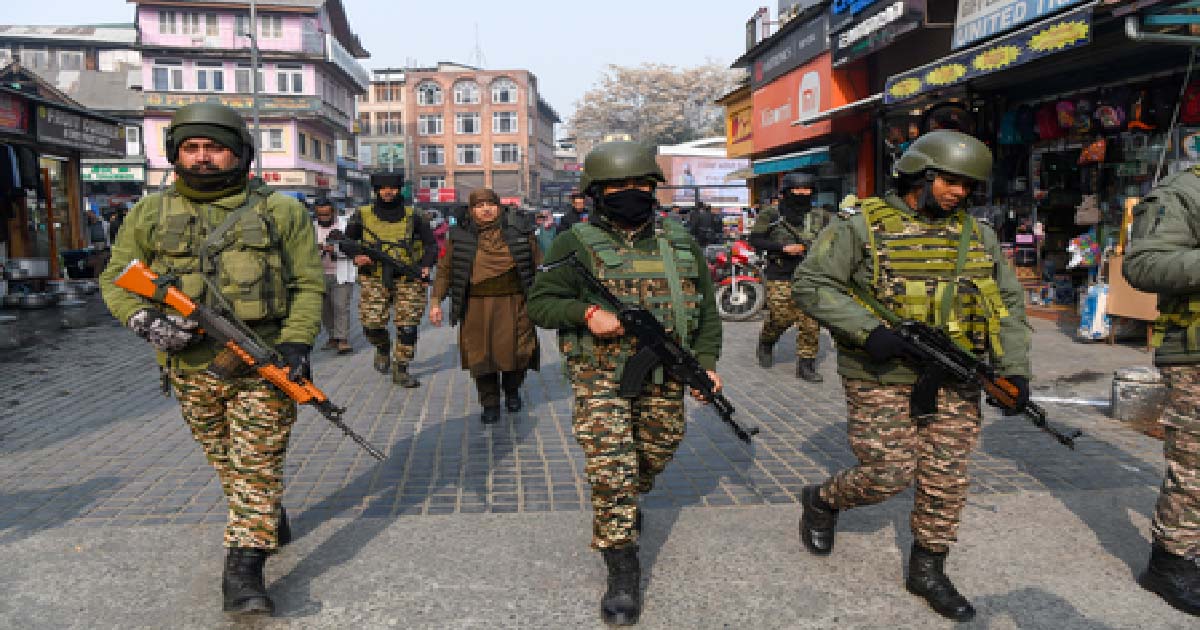
Srinagar, Nov 28: J&K Police and the Central Reserve Police Force (CRPF) carried out a cordon and search operation (CASO) in Srinagar’s Lal Chowk on Friday.
“The search operation was carried out as part of heightened security measures in the busy commercial centre,” an official said.
“Multiple teams conducted surprise inspections in several hotels and guest houses to verify records of visitors and ensure overall security compliance,” the official said, adding: “The operation continued for several hours; however, no suspicious activity was reported.”
J&K Police and other security forces have been carrying out aggressive anti-terrorist operations across the UT. These operations are focused on terrorists, their overground workers (OGWs), sympathisers, drug smugglers, and those involved in hawala money rackets and other unlawful financial activities.
This is part of the revised strategy by the security forces to dismantle the support system of terror rather than just focusing on the gun-wielding terrorists.
J&K has a 740-km-long line of control (LoC) and a 240-km-long international border (IB).
The army guards the LoC situated in Baramulla, Kupwara and Bandipora districts of the Kashmir Valley and Poonch, Rajouri, and parts of the Jammu district of the Jammu division.
The Border Security Force (BSF) guards the IB situated in Jammu, Samba, and Kathua districts of Jammu division.
The army and the BSF guard against infiltration, cross-border smuggling, and terrorist drone activity on the LoC and the IB, while the J&K Police and other security forces carry out anti-terrorist operations in the hinterland.
In the recent security review meeting, which was attended by senior officers of the army, paramilitary forces, J&K police, intelligence and senior civil administration officers, Lt Governore Manoj Sinha gave clear instructions to the security forces to target the support system of terrorism in the UT.
-

 Crime3 years ago
Crime3 years agoClass 10 student jumps to death in Jaipur
-

 Maharashtra1 year ago
Maharashtra1 year agoMumbai Local Train Update: Central Railway’s New Timetable Comes Into Effect; Check Full List Of Revised Timings & Stations
-

 Maharashtra1 year ago
Maharashtra1 year agoMumbai To Go Toll-Free Tonight! Maharashtra Govt Announces Complete Toll Waiver For Light Motor Vehicles At All 5 Entry Points Of City
-

 Maharashtra1 year ago
Maharashtra1 year agoFalse photo of Imtiaz Jaleel’s rally, exposing the fooling conspiracy
-

 National News1 year ago
National News1 year agoMinistry of Railways rolls out Special Drive 4.0 with focus on digitisation, cleanliness, inclusiveness and grievance redressal
-

 Maharashtra1 year ago
Maharashtra1 year agoMaharashtra Elections 2024: Mumbai Metro & BEST Services Extended Till Midnight On Voting Day
-

 National News1 year ago
National News1 year agoJ&K: 4 Jawans Killed, 28 Injured After Bus Carrying BSF Personnel For Poll Duty Falls Into Gorge In Budgam; Terrifying Visuals Surface
-

 Crime1 year ago
Crime1 year agoBaba Siddique Murder: Mumbai Police Unable To Get Lawrence Bishnoi Custody Due To Home Ministry Order, Says Report



